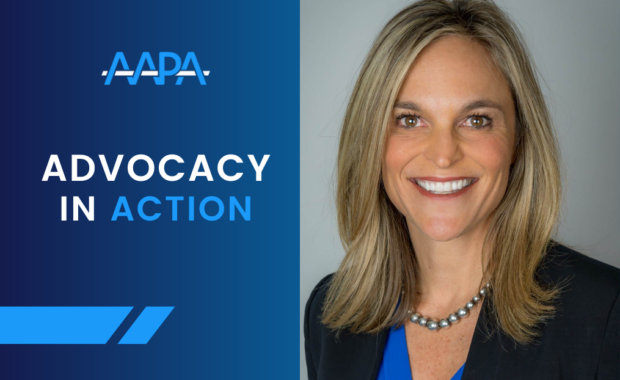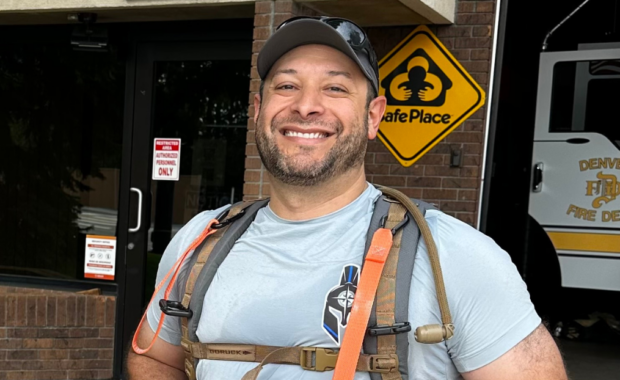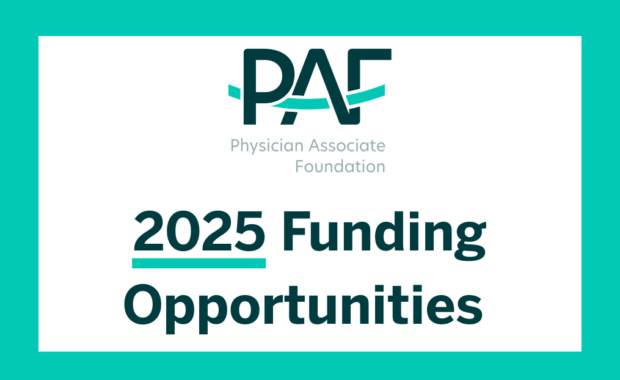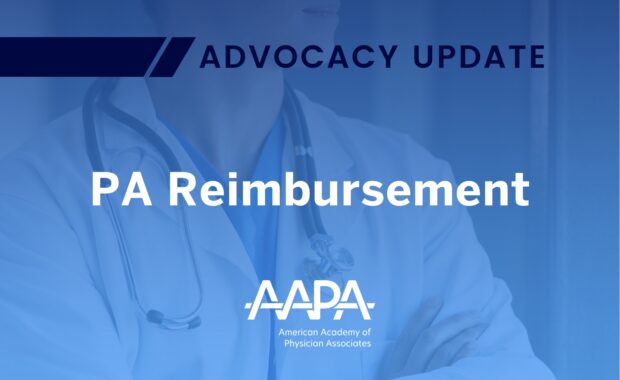Conversation with Two LBGT PA Caucus Leaders
Reflections on Pride Month, Social Justice Movement, Landmark Rulings
June 26, 2020
During LGBTQ Pride Month, AAPA spoke to two leaders of the LBGT PA Caucus, President Mia McDonald, PA-C, an emergency medicine PA in Greensboro, North Carolina; and to Director-at-Large Daniel Mulcahy, PA-C, who is also chair of the communications committee. Mulcahy is a recently certified new graduate who hopes to work in LGBTQ+ health. Read below about what’s on their minds.
[AAPA Observes LGBTQ Pride Month Through Intersectional Lens]
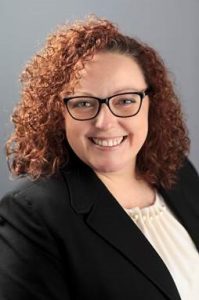
How does the June 12 HHS rule impact the LGBT PA community and those they serve?
McDonald: Prior to the Title VII Supreme Court ruling, nearly half of all LGBTQ+ PAs lived in states without inclusive statewide workplace nondiscrimination laws. The ruling now provides federal law prohibiting sex discrimination that includes protection based on sexual orientation and gender identity. The majority opinion stated, “It is impossible to discriminate against a person for being homosexual or transgender without discriminating against that individual based on sex.” This impacted me on a personal level since I live and practice medicine in North Carolina, a state that did not have statewide protections in place prior to the Supreme Court ruling. With additional protections in place, this can ultimately improve access to care for patients cared for by LGBTQ+ practitioners.
What is the Caucus’ response regarding the June 15 Supreme Court Title VII decision? What advocacy efforts by the Caucus and others led to the decision?
McDonald: The Caucus was beyond ecstatic in regard to the historic Supreme Court Title VII decision, particularly since the decision came only three days after the U.S. Department of Health and Human Services released a final rule that eliminated federal regulations ensuring nondiscrimination in healthcare for transgender persons and lesbian, gay, and bisexual people, those who require healthcare services in a language other than English, people who are pregnant or seeking an abortion, and other marginalized communities.
The LBGT PA Caucus frequently collaborates with GLMA: Health Professionals Advancing LGBTQ Equality, an interdisciplinary organization committed to ensuring health equity for LGBTQ+ and all sexual and gender minority individuals. I was included in a USA Today article prior to the decision as a frontline LGBTQ+ worker since I’m employed in North Carolina.
What’s next on the list of continued advocacy efforts for equality?
McDonald: Over the last few weeks, we have been heartbroken over the killings of George Floyd, Breonna Taylor, and Ahmaud Arbery. Within our own community, we have also been mourning the killings of three transgender women of color, Selena Reyes-Hernandez, Riah Milton and Domininque “Rem’mie” Fells in addition to Tony McDade, a Black transgender man – all of whom have been killed within the last month. The Caucus is committed to a future with a healthy sexual and gender climate and eliminating health disparities for all members of the LGBTQ+ community, particularly Black, Indigenous, and people of color. We cannot create that climate without addressing the systemic racial inequality, prejudice, and discrimination within our country. This is the most pressing issue in our continued efforts for equality. The Caucus is also actively collaborating with other constituent organizations to submit an anti-racism resolution for the 2020 House of Delegates meeting.
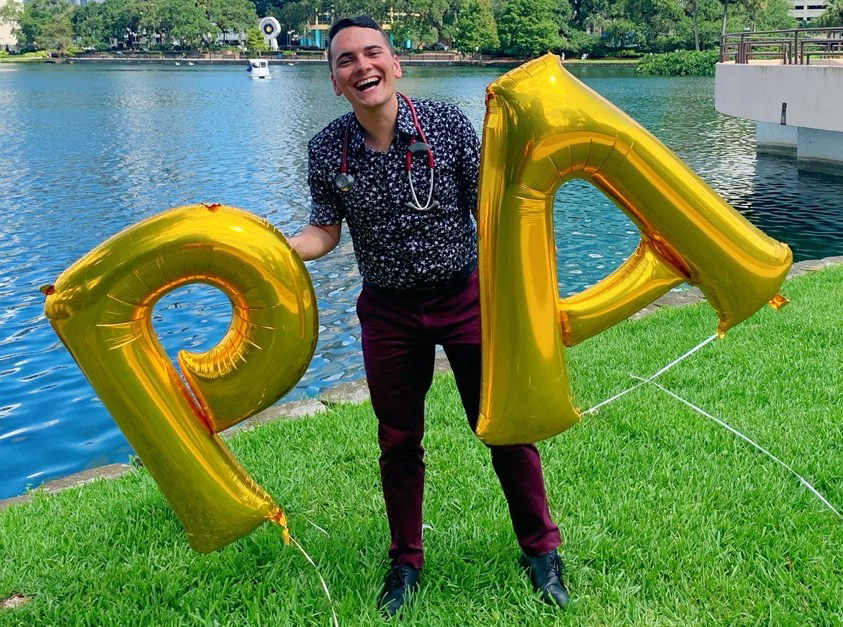
How is Pride Month different this year than previous years?
Mulcahy: This year, more than ever, is representative of what Pride truly stands for: a fight for the rights of those who are being discriminated against by those coming from a place of privilege. In recent years, Pride has seemed to lose its true meaning. Companies have flooded city streets and plastered rainbows on everything from tennis shoes to kitchen utensils, with a lot of these companies not even donating proceeds to LGBTQ+ organizations.
Many have treated Pride as a celebration or a party and to me it has never been either of those things. Pride is a march against discrimination and for equity and rights. Stonewall was a rebellion against police brutality and discrimination and I believe that this year is truly representative of that message. I stand with my Black LGBTQ+ community and hope to do my part to elevate their voices. Marsha P. Johnson, one of the leaders of LGBTQ+ liberation at Stonewall, summed it up perfectly: “No pride for some of us without liberation for all of us.”
How does the Caucus look at intersectionality?
Mulcahy: Intersectionality is a complicated concept and many actually aren’t aware of how deep it goes. Intersectionality is to understand that people may experience many interlocking oppressions that lead to deeper, broader, patterns of discrimination based on their gender identity, sexual identity, race, socioeconomic status, and so on. Let me use myself as an example. I am a white, cis-gender (meaning that my gender identity is in congruence with the sex I was assigned at birth), gay male who comes from a middle class socioeconomic status in a predominately white neighborhood. Although I have been discriminated against for being openly LGBTQ+, my experience is and will always be vastly different and easier than a transgender woman of color due to intersectionality and deeper levels of discrimination. The LBGT PA Caucus is committed to a future with a healthy sexual and gender climate. We are also committed to eliminating health disparities for all. This climate can’t be achieved without addressing the systematic racial inequality in this country.
How can you and others help to amplify other voices?
Mulcahy: As an ally, it is my job not to speak for people of color but instead amplify their voices and ensure those voices are heard. Amplifying their voices isn’t solely about posting Instagram stories and Facebook posts. It’s having difficult conversations with fellow white family members or friends. It’s speaking out when you hear a racist joke or when you see discrimination firsthand. It’s attending protests. It’s using your privilege and your body as a physical barrier between discrimination and your Black friends. It’s donating money to organizations like the Okra Project and Solutions Not Punishment Collaborative. It’s saying Black Lives Matter. Black Trans Lives Matter. Black LGBTQ+ Lives Matter.
What is the Caucus offering to further educate prospective PAs, current PAs and patients about diversity and inclusion?
Mulcahy: The LBGT PA Caucus is launching two new student leader fellowships in association with the African Heritage PA Caucus and PAs for Latino Health. The purpose of these fellowships is for future leaders in medicine to reflect the communities we serve and to offset the cost of attending AAPA Conference People run for leadership positions when they see themselves reflected in said leadership. This year there will be a focus on educating our scholars on not just LGBTQ+ health disparities but disparities for all.
How can we create a student pipeline so the profession is more diverse?
Mulcahy: This can be done by utilizing the variety of diverse caucuses and PA organizations like PAEA, NCCPA, and AAPA. I think AAPA and PAEA are doing a wonderful job hosting listening sessions and student town halls on racial injustices. Providing that safe space for Black and brown PAs to share their stories and experiences is what we need right now. Opening the dialogue for further conversations at AAPA conferences is a must. Incorporating diversity and inclusion into educational requirements for PA students is a must.
What programming and resources is the Caucus offering to PAs (scholarships, CME, meetings)?
McDonald: Our first-ever CME conference on health was held on June 20. Pride in PA Practice was open to all PAs and PA students. Annually, the Caucus selects our one-year Student Leader Fellows, PA students who identify as LGBTQ+ and have a passion for developing their leadership skillset. At the AAPA Conference, we have robust programming almost daily throughout the conference. We will often hold networking opportunities at other AAPA events, such as the Leadership & Advocacy Summit. If you are planning a conference and are interested in having CME on sexual orientation and gender identity, we can help to connect you with a subject matter expert in your general area. More information is available on our website or you can email us!
How can interested PAs get involved?
McDonald: If you’re interested in getting involved, email us directly at [email protected]. We are always looking for both PAs and PA students who are interested in serving on a committee or joining our board. We also have a robust, active Facebook Group for ongoing and more in-depth conversations about SGM topics.
Contact Mia McDonald at [email protected] and Daniel Mulcahy at [email protected].
Thank you for reading AAPA’s News Central
You have 2 articles left this month. Create a free account to read more stories, or become a member for more access to exclusive benefits! Already have an account? Log in.
